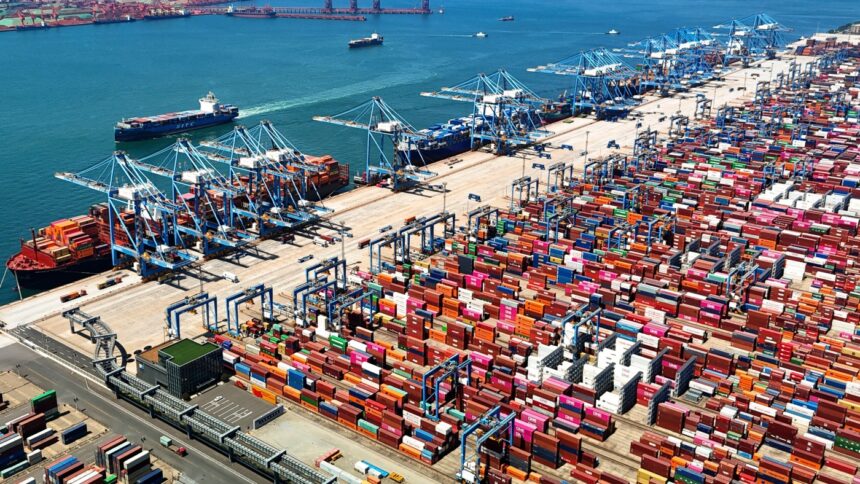In a significant escalation of trade tensions, China has firmly rejected threats from the United States President Donald Trump regarding potential 100% tariffs on imports from China. The Chinese Commerce Ministry emphasized its long-standing position, stating that while it does not desire a tariff war, it is unafraid to engage if necessary.
This development follows Trump’s warning to increase tariffs in response to China’s new restrictions on rare earth exports, which are crucial for various consumer and military applications. The Chinese government’s statement marks its first official reaction to this escalation and suggests that the U.S. should prioritize negotiation over threats.
According to the Commerce Ministry, the ongoing back-and-forth jeopardizes the prospects of a meeting between Trump and Chinese leader Xi Jinping, potentially undermining what little truce remains in the ongoing trade war. Both nations had previously pushed tariffs beyond 100% as of April, and the current situation intensifies the already fraught relationship, characterized by escalating trade barriers.
As a part of its broader strategy, the United States has increased tariffs on a range of products from several trading partners since Trump’s inauguration, with China being a notable country that has not backed down. The Chinese government critiqued the U.S. approach, asserting that continually resorting to high tariffs is not an effective way to foster a relationship with China. The Chinese statement further warned that if the U.S. pursues a confrontational path, China will respond resolutely to safeguard its legitimate interests.
Beyond tariffs, Trump has also floated the idea of implementing export controls on what he described as “critical software,” though specific details remain vague. Both sides have accused each other of undermining the spirit of the previous trade truce by enacting additional trade limitations.
In a social media post, Trump accused China of adopting a hostile stance and claimed that it was restricting global access to vital rare earth metals and magnets. In its defense, the Chinese Commerce Ministry noted that the U.S. has rolled out several new restrictions in recent weeks, which include expanding the number of Chinese enterprises subject to U.S. export controls.
Regarding rare earth elements, the ministry announced that export licenses would only be granted for legitimate civilian uses, highlighting that these minerals also serve military applications. Furthermore, new regulations demand foreign firms obtain approval from the Chinese government for any exports of products containing rare earth materials sourced from China, regardless of the manufacturing location.
China dominates the global rare earth market, accounting for approximately 70% of mining and around 90% of processing capabilities. This control places significant leverage in trade negotiations, as access to these critical materials is essential for a wide array of technologies, including military hardware and consumer electronics.
In response to ongoing U.S. tariff measures, China has declared its own set of port fees targeting American ships, a move reflecting the escalating tit-for-tat dynamics of this trade conflict. As the situation unfolds, the prospect for a diplomatic resolution hangs in the balance, with both sides showing no signs of retreating from their positions.







